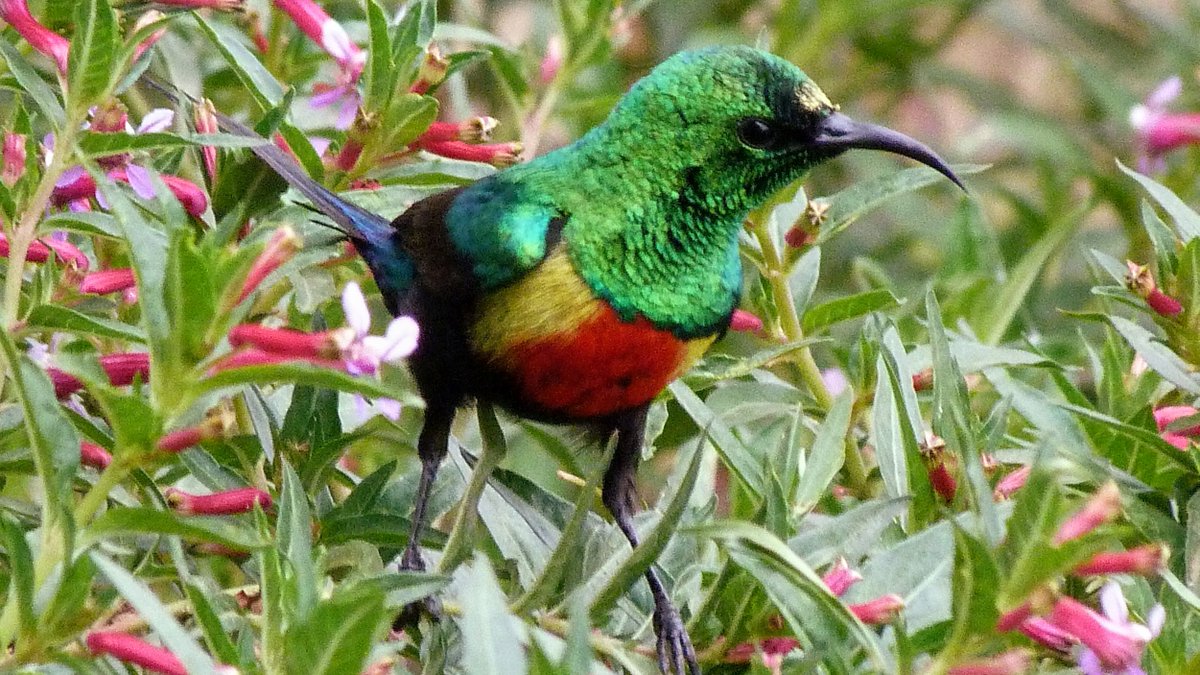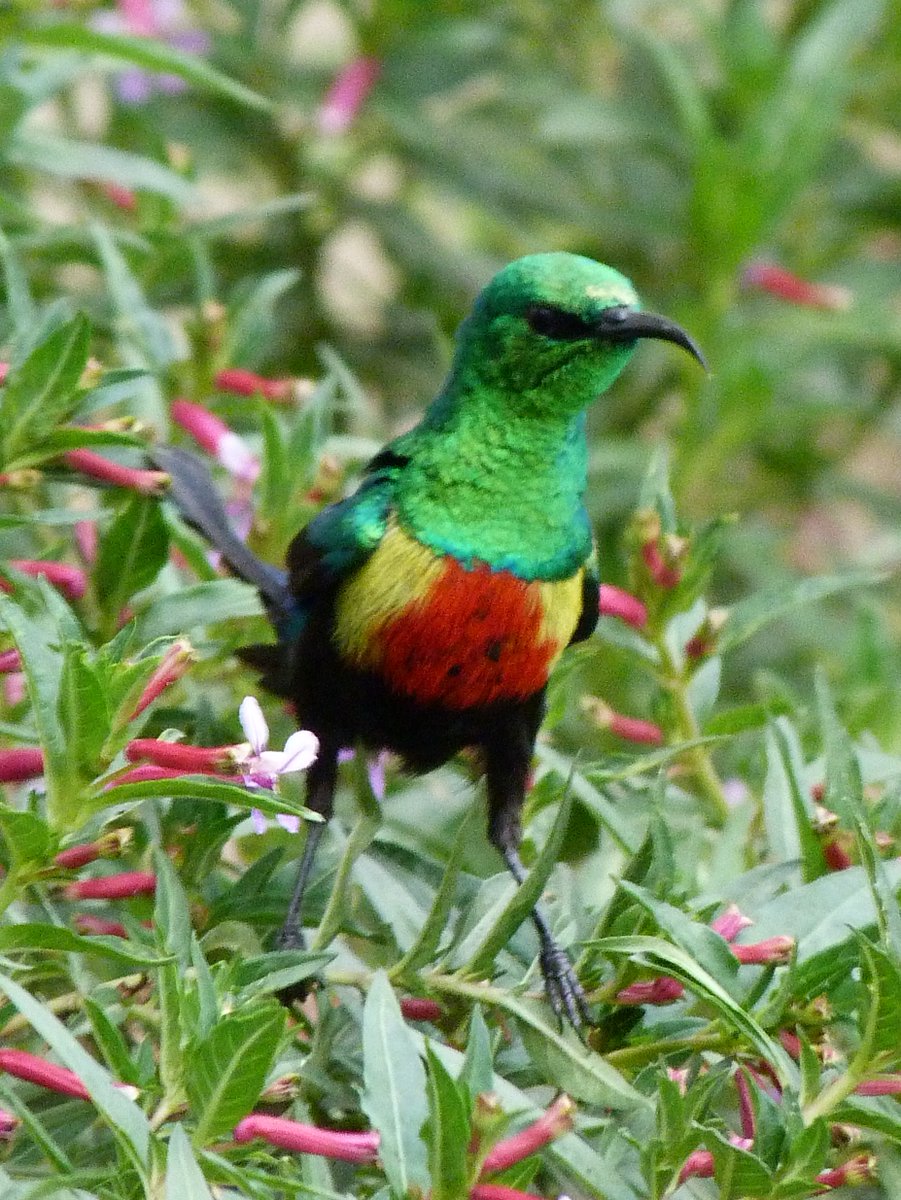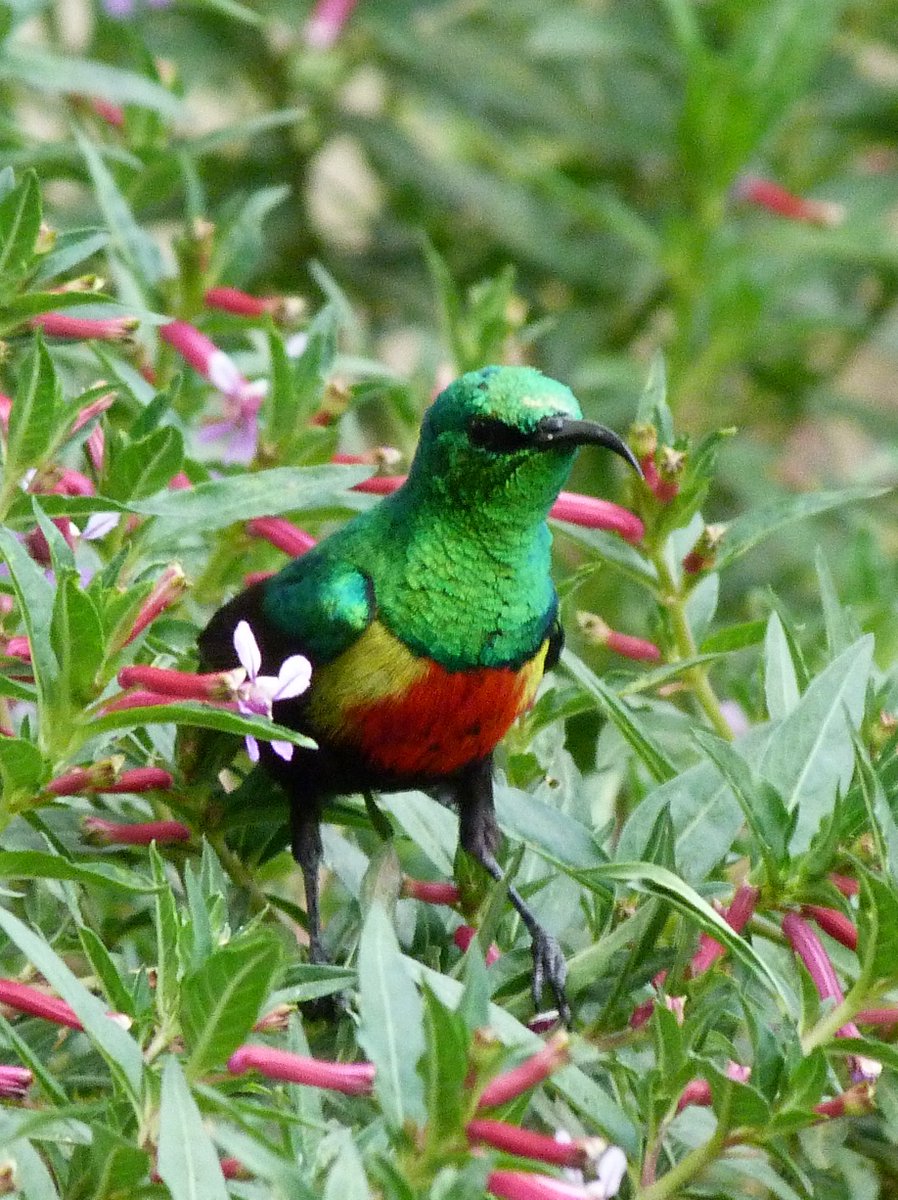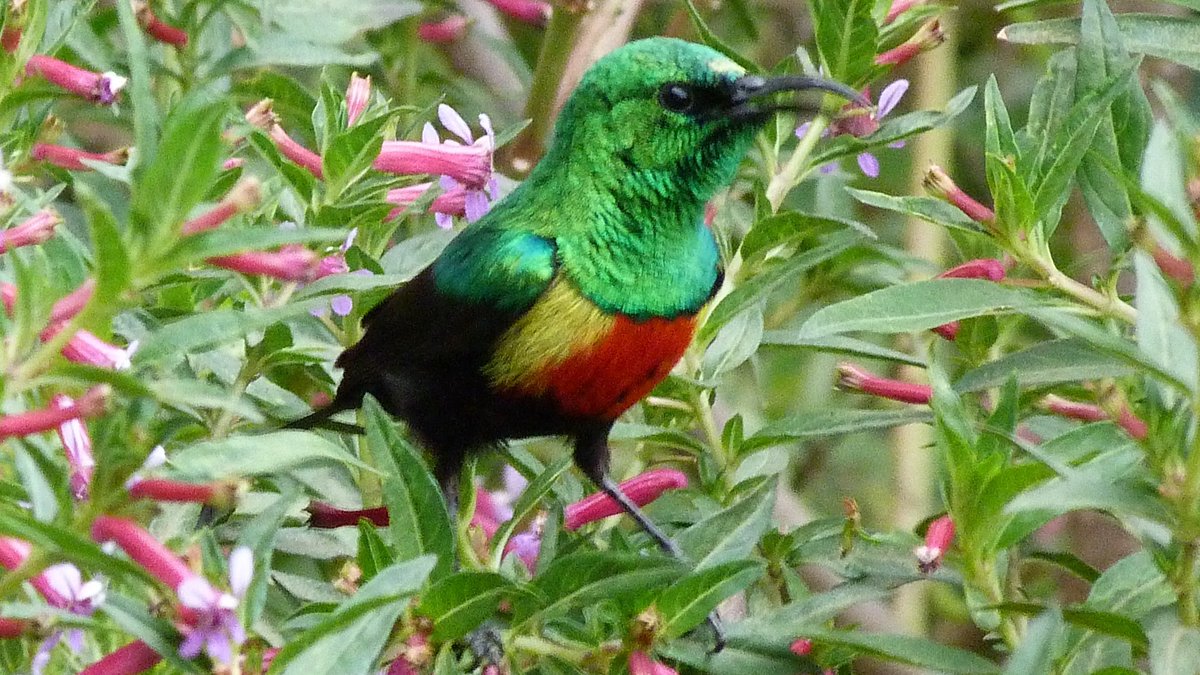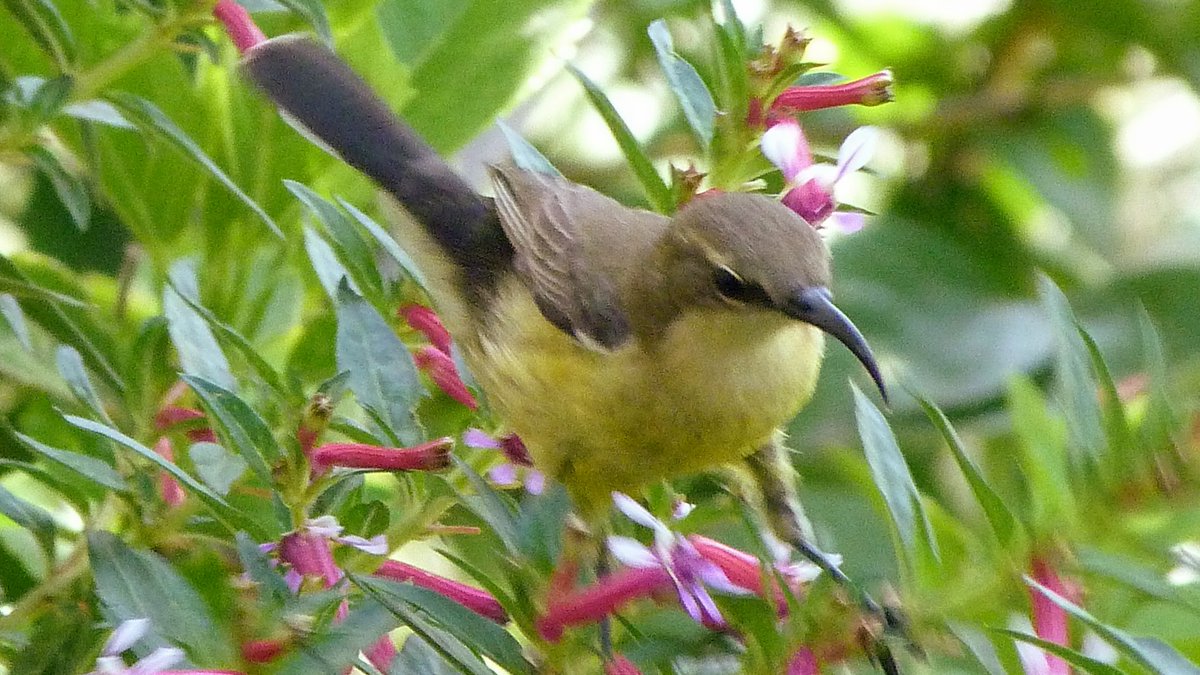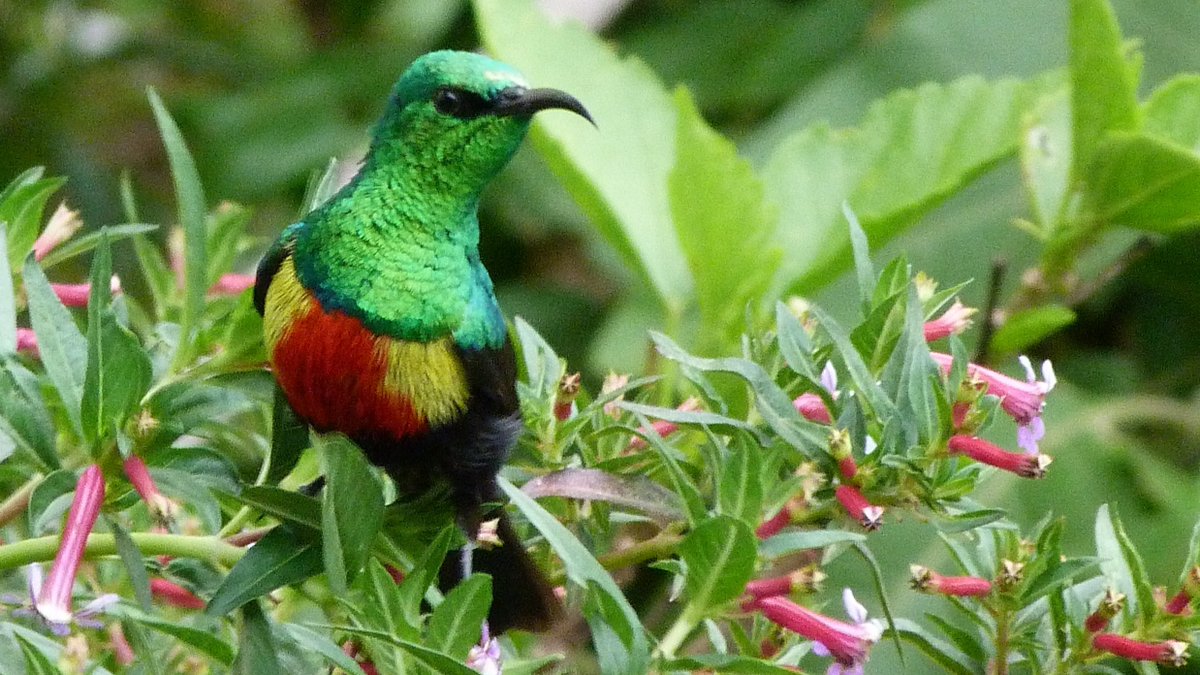I've been working on the @UniOfYork's biology MOOC this week https://www.futurelearn.com/admin/courses/the-biology-of-bugs-brains-and-beasts/2 & someone raised the excellent question of why do we do #conservation anyway? So my answer is today's #BirdsAtTea: the Beautiful Sunbird. Surely, such beauty deserves protection? 1/6 #ornithology
I am unashamedly of the opinion that conservation is a moral obligation. Whether you believe all life has intrinsic value, or that value comes from reflecting the works of a creator God doesn't matter to me: I believe the world is better with Beautiful Sunbirds and their ilk. 2/6
Many conservationists are like me in this respect, but conservation has developed a rather dishonest tendency to justify itself solely based on arguments of economic value. Certainly, biodiversity often has significant monetary value, but that isn't my primary motivation. 3/6
Monetary value comes directly from, eg ecotourism, or indirectly from the costs we'd have to pay to replace the role of an ecosystem in, eg purifying water, or cleaning air for us. But this is a risky basis for conservation: what if artificial water purification gets cheaper? 4/6
Such a moral view has its own problems though: it implies that in some way the Beautiful Sunbird is global heritage, belonging to no-one. Yet its conservation directly impinges on people who may not share my view, or who simply need firewood: they are surely the real owners? 5/6
So this is why #conservation often turns to $$: practically speaking, if Beautiful Sunbirds are worth more alive than dead, they may stand a better chance of surviving. Is the question then how many do we need? Or who really owns biodiversity? Any thoughts welcome! 6/6 #birds

 Read on Twitter
Read on Twitter